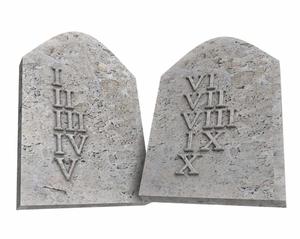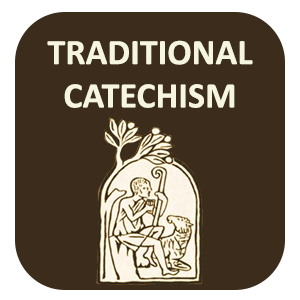The Second Commandment Lesson 4

Thou shalt not take the name of the Lord thy God in vain: for the Lord will not hold him guiltless that shall take the name of the Lord his God in vain. (Exodus 20:7)
What does the word "vain" mean? It means Empty; worthless; having no substance, value or importance. Not effectual; having no efficacy.
The flip side of that is what Jesus teaches us in Matthew 6:9, "Hallowed be your name," Holy, respected, revered, honored be Your name.
Let me share with you four ways that we take the Lords name in vain.
One, through false promises:
(Matthew 5:33-35)
Again you have heard that it was said to them of old, Thou shalt not forswear thyself: but thou shalt perform thy oaths to the Lord.
But I say to you not to swear at all, neither by heaven, for it is the throne of God:
Nor by the earth, for it is his footstool: nor by Jerusalem, for it is the city of the great king:
Second, false prophecies:
(Jeremiah 14:14)
And the Lord said to me: The prophets prophesy falsely in my name: I sent them not, neither have I commanded them, nor have I spoken to them: they prophesy unto you a lying vision, worthless divination, and the deceit of their own heart.
False prophecies impose on people things that God didn't say, and those things harm people that God loves. A good example of what I am saying is in time prophecies. So much of End Time Theology has been made up by those who came up with conjectures and eventually they became "facts".
The third way we take the Lord's name in vain is by false pretenses.
(Matthew 7:21-23)
Not every one that saith to me, Lord, Lord, shall enter into the kingdom of heaven: but he that doth the will of my Father who is in heaven, he shall enter into the kingdom of heaven.
Many will say to me in that day: Lord, Lord, have not we prophesied in thy name, and cast out devils in thy name, and done many miracles in thy name?
And then will I profess unto them, I never knew you: depart from me, you that work iniquity.
Many invoke the name of the Lord, People claim all their lives are in His name, but sometimes it isn't for His name. They use God's name for their own benefit. In other words they use God's name for false pretenses.
False pretense, is when your words and your works are incompatible. False pretenses are occasions on which we are pretending. We are pretending to be one of God's people when we are not one of God's people. We do it because it benefits us. We want all the benefits, but none of the commitments.
A President of the United States gave an address to Planned Parenthood, the largest abortion provider in the United States of America. The president finished his address by saying, "Thank you, Planned Parenthood. God bless you." So whether he realized it or not he was saying, "God please bless them so they can take the life of more children,". That's a violation of the third commandment. That is using God's name in vain.
Fourth, we take the Lord's name in vain by false platitudes and profanity:
(Leviticus 19:12) Thou shalt not swear falsely by my name, nor profane the name of thy God. I am the Lord.
What does the word "profane" mean? The God of the Scriptures is a God of glory...He is weighty, He is heavy, He is preeminent, He is significant… Profanity is when we treat His name lightly and inconsequentially, and just dismiss Him, and make sport of or make fun of God and his name.
OMG or Geez, Gosh Golly,(you get the picture) are called Euphemisms. Euphemisms substitutes a mild or vague expression for one that is considered to be offensive or harsh. Using these Euphemisms is just another way of using God's name in vain.
We're not to avoid God's name or abuse God's name. We're to use God's name in a way that honors God.








 Follow
Follow

